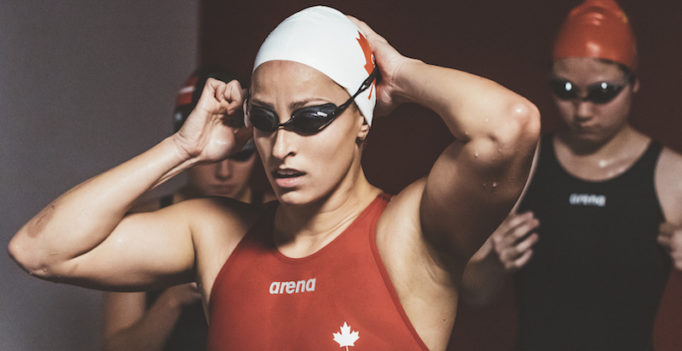Pascal Plante’s Nadia, Butterfly eerily takes place at the now-cancelled 2020 Tokyo Olympics, and follows a French Canadian Olympian swimmer as she participates in her final event as a professional athlete. Lovingly directed yet glacially paced, Nadia, Butterfly boasts some excellent performances and cinematography, but struggles to overcome its vague characterizations and meandering screenplay.
Following her team’s bronze medal victory at the swim relay event, Nadia (Olympic medalist Katherine Sevard) parties around Tokyo, while pondering her imminent, voluntary retirement. Despite its straightforward plot, Nadia, Butterfly tends to drift aimlessly and purposelessly from scene to scene, sharing the same ambivalence that Nadia herself feels as she struggles to define precisely where her life may be heading.
Nadia, Butterfly functions brilliantly in moments, but as a whole text feels uncertain and vague. The film’s strengths are clearly demonstrated in its first act, as cinematographer Stéphanie Anne Weber-Biron masterfully evokes the tension and weightiness of the swim race through a long take. Another great scene depicts Nadia and her teammate dancing and singing to Shania Twain’s iconic “Man! I Feel Like a Woman”. But, the scenes fleetingly come too far apart.
Despite its (perhaps intentional) flaws, Nadia, Butterfly deserves an audience following its unfortunately cancelled Cannes premiere this year. What the film cinematically accomplishes outweighs its sluggish pace and vague subtext.
**********
Do You Tweet? Follow These Tweeple:
Mark Barber: @WorstCinephile





Be the first to comment